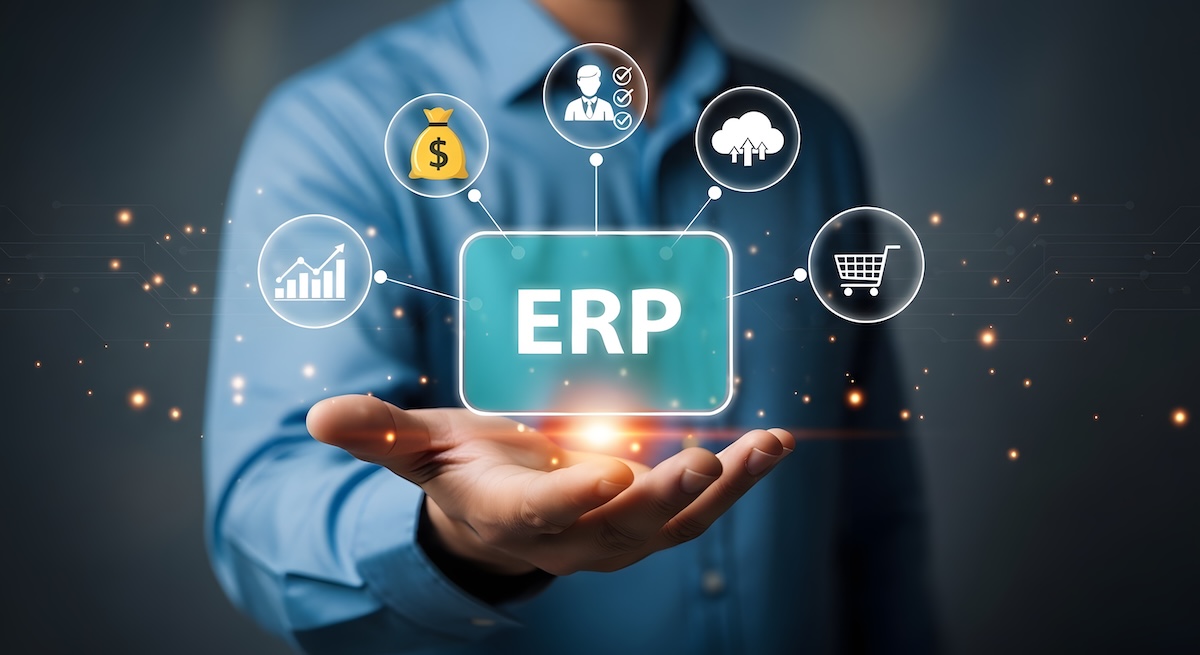Cloud ERP systems are now a strategic imperative for growth-focused companies. While IT teams can handle the technical heavy lifting, executive leadership plays a pivotal role in ensuring ERP initiatives deliver real business value.
Research shows that half (50%) of companies plan to acquire, upgrade, or update ERP systems soon. But misalignment between business goals and implementation strategies can lead to a hard hit on any ROI from such a tool. To avoid becoming part of that statistic, executives must ask the right questions.
Here’s what every executive should be asking their IT team before, during, and after a cloud ERP implementation.
7 Questions Executives Should Ask Their IT Team
1. What’s the Business Case for This ERP?
Before greenlighting any ERP project, ask:
- What are the expected ROI and cost savings?
- How does this align with our strategic priorities?
- What’s the total cost of ownership over 5–10 years?
According to Forrester’s TEI study, organizations using cloud ERP saw a 106% ROI and over $8 million in net present value.
2. How Will This Affect Our Current Processes?
ERP often requires rethinking how the business operates. It goes beyond a routine tech upgrade. Ask:
- Will we adapt our processes to the ERP, or customize the ERP to fit us?
- What is the plan for change management?
Gartner emphasizes that over-customization can lead to delays and higher costs, especially when updates are frequent in cloud environments.
3. What’s the Implementation Timeline and Milestone Plan?
Executives need visibility into:
- Key phases (e.g., discovery, configuration, testing, go-live)
- Milestones and dependencies
- Contingency plans for delays
McKinsey notes that ERP projects often run over budget and behind schedule when governance is weak or roles are unclear.
4. What Are the Risks and How Are We Mitigating Them?
Common risks include:
- Data migration errors
- Business disruption during cutover
- Vendor lock-in or compliance gaps
Executives should ensure there’s a risk register and mitigation plan in place. Forrester warns that cloud ERP transitions must be carefully managed to avoid bottlenecks and inefficiencies.

5. How Will We Ensure User Adoption?
Even the best ERP system fails without user buy-in. Ask:
- What’s the training and onboarding plan?
- How are we gathering feedback from users?
- Are we investing in “change champions” across departments?
Research shows that lack of user engagement and unclear ownership are major contributors to ERP failure.
6. How Will We Measure Success?
Define success early. Consider:
- Operational KPIs (e.g., order-to-cash cycle time, inventory accuracy)
- Financial metrics (e.g., cost savings, revenue growth)
- Adoption metrics (e.g., user satisfaction, system usage rates)
7. What’s the Long-Term Support and Scalability Plan?
Cloud ERP is not a one-and-done project. Ask:
- How will we handle updates and new features?
- What’s the roadmap for scaling new business units or regions?
- How will we integrate with other systems?

Why Cloud ERP Matters to the C-Suite
Cloud ERP systems offer more than just modern infrastructure. They enable agility, scalability, and data-driven decision-making. According to Forrester, cloud ERP helps organizations streamline operations, reduce reliance on legacy systems, and improve real-time visibility across departments.
Key benefits include:
- Business agility: Rapid adaptation to market changes and customer demands.
- Cost efficiency: Lower infrastructure and maintenance costs compared to on-premises systems.
- Real-time insights: Centralized data enables faster, more informed decisions.
- Scalability: Easily supports growth across geographies and business units.
The Executive’s Role in ERP Implementation
While IT leads the technical execution, executives must:
- Champion the vision: Set clear business goals and communicate the “why” behind the ERP initiative.
- Align strategy and technology: Ensure the ERP supports long-term business objectives.
- Foster collaboration: Break down silos between departments to support cross-functional adoption.
- Monitor outcomes: Track KPIs and hold teams accountable for delivering value.
Red Flags to Watch For
Executives should be alert to:
- Over-customization that increases complexity
- Lack of executive sponsorship or business alignment
- Poor data quality or unclear data ownership
- Inadequate training or change management
These issues are often the root causes of ERP failure, not the technology itself.
Conclusion
Cloud ERP can be a game-changer if it’s implemented with strategic oversight and cross-functional alignment. By asking the right questions, executives can ensure their ERP investment delivers measurable business value, not just technical upgrades.
About Atlantic, Tomorrow’s Office
Atlantic, Tomorrow’s Office is a leading managed services provider offering managed IT, cybersecurity, office technology, business consulting, and digital transformation solutions. Focusing on helping mid-market businesses optimize their cybersecurity practices, enabling technology and operations, Atlantic delivers end-to-end solutions tailored to the evolving needs of today’s enterprises.
For the latest industry trends and technology insights, visit ATO’s main Blog page.






